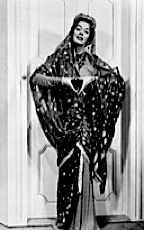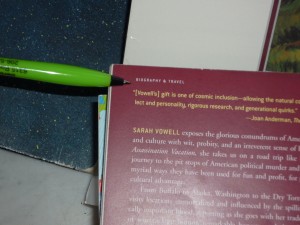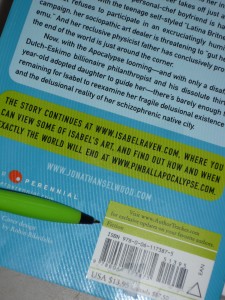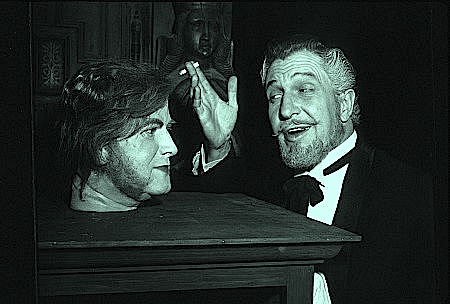








Still hanging in there, campers? How delightfully brave and intrepid of you. Here I am, expecting you to swallow a whole lot of rather unpleasant truths about marketing in great big gulps, and you just plow ahead with me. Shall I slow down a bit today, to give your mental digestive processes time to catch up?
Hark — do I hear a chorus of small voices out there in the ether? “Heck, no, Anne!” my plucky readers chirp. “I want to learn to pitch! Bring it on, and keep it coming!”
How gratifying. Let us press on, then.
For those of you who did not shout hosannas in response, or who think that my spending so many posts on pitching is sort of a waste of time, since the vast majority of aspiring writers will never give a face-to-face pitch — specifically, the vast majority who never attend writers’ conferences, literary parties, or have opportunities to talk about their books in public — please, for your own sakes, do not simply zone out during this series because you aren’t planning on pitching anytime soon.
Why not? Learning how to give a verbal pitch well will not only help you present your work more professionally in any context; it will also render you a much desirable cocktail party invitee.
Oh, sure, that seems like a shallow incentive. “I resent it enough that I have to learn how to present my book well to agents and editors,” those of you clinging to the high ground mutter. “I want to be judged on my writing, and here I am, squandering my time on figuring out how to pitch and query. And on top of that, you want me to waste still more energy worrying about how I sound to anyone else?”
Yes, yes, the overwhelming majority of aspiring writers feel that having to market their book at all is a monumental imposition. That’s a view that makes little sense to folks in the industry — unless a writer seriously believes that Publishing Fairy shows up the instant the first draft of a brilliant book is completed, leading an agent on a leash like a St. Bernard, how else would the agent of his dreams learn of the manuscript’s existence other than by writer’s self-promotional efforts? — but it’s certainly understandable. Writing a book was — and is — a lot of work.
But it’s just a fact that the average writer causes herself a lot of unnecessary stress by avoiding coming up with a simple, direct means of describing her book in under two minutes — because, let’s face it, writers are expected to give brief, entertaining overviews of their work all the time. If we could harness all of the chagrin felt nationally by aspiring writers struggling to define their work in social situations alone, we could build a perfect 1:48 scale replica of the Taj Mahal outside every bookstore in the United States in under a month.
Don’t believe me? Okay, hands up, anyone who has ever been asked by a stranger, “Oh, you write? What’s your book about?” and ended up giving a 45-minute blow-by-blow account of the plot to some poor soul who was only trying to be polite? Your heart shriveled up like a prune, didn’t it, while you watched that nice person’s eyes glaze over? You didn’t think of pretending to choke on an olive until you had already made it past the chase scene in Chapter 28, and by then, you figured you might as well just finish.
Two hands up if you have ever stumbled into the opposite faux pas, answering the question by turning bright pink and muttering, “Um, it’s sort of…autobiographical, based on a true story,” changing the subject so suddenly that your questioner assumed that your memoir must have been about a prison break, and you must still be on the lam. This is particularly embarrassing if one happens to blurt out this sentence to someone remotely affiliated with the publishing industry, who is all too likely to inform you huffily that all memoirs are autobiographical and thus based upon true stories — the credible ones, at least — and that what he was asking you is what had happened in your life that makes you believe that a reader will want to follow you through 400 pages.
Oh, and you might want to avoid telling that guy you’re writing a fiction novel, unless you’re just dying to hear a 20-minute lecture on how much this phrase bugs professional readers. (All novels are fiction, you see.)
I’ll stop now, as presumably, you’d have to run to the neighbors to borrow another hand to raise. For now, let’s just agree that a savvy writer and reasonable human being would prefer not to be caught in either of these scenarios unprepared.
“Ah,” the shy amongst you cry, “I can see why a writer foolish enough to venture out into public AND to admit to having produced a book to someone who might conceivably be able to help bring it to publication might find having a pre-written speech helpful for moments like this. I, however, am of the ilk of aspiring writer who intends not to breathe a word about my book in public space (whether it be construed in the Rousseauian or Habermasian senses) until I already have a publication contract in hand. Then I shall astonish kith, kin, and bystander by abruptly revealing my status as an author, and everyone who ever thought mean thoughts about me will stand up and applaud.”
Ah, that old scheme; scratch any three aspiring writers, and you’ll find one bent upon keeping her writing a secret until it’s successful. Furthermore, she’s been determined to follow this strategy ever since the fourth grade, when she read about Jo March doing it in LITTLE WOMEN.
Oh, you don’t think many writers regard Jo as a role model for marketing? Think about it: she scribbles — Alcott’s word — in secret in a literal attic, producing her fantastic tales of woe and uproar and quietly submits them for publication (to a single entity, no less; no strategic mass marketing for her). Heck, she only admits to her best friend that she’s doing it at all, and forces him to drag the truth out of her at that.
Forgive the indulgence of an extended excerpt. I’m guessing that even those of you who did not grow up with the March girls will find both her hopes and her logic familiar:
“You won’t say anything about it at home, will you?”
“Not a word.”
“And you won’t tease me in private?”
“I never tease.”
“Yes, you do; you get everything you want out of people. I don’t know how you do it, but you are a born wheedler.”
“Thank you; fire away.”
“We’ll, I’ve left two stories with a newspaperman, and he’s to give his answer next week,” whispered Jo in her confidant’s ear.
“Hurrah for Miss March, the celebrated American authoress!” cried Laurie, throwing up his hat and catching it again, to the great delight of two ducks, four cats, five hens, and half a dozen Irish children, for they were out of the city now.
“Hush! It won’t come to anything, I dare say; but I couldn’t rest until I had tried, and I said nothing about it, because I didn’t want anyone else to be disappointed.”
“It won’t fail, Why, Jo, your stories are works of Shakespeare, compared to half the rubbish that is published every day. Won’t it be fun to see them in print, and shan’t we feel proud of our authoress?”
Jo’s eyes sparkled, for it is always pleasant to be believed in, and a friend’s praise is always sweeter than a dozen newspaper pulls.
Come on: absent the audience of poultry, you’ve probably had virtually this conversation with a significant other of some stripe. Feel free to take a moment to sigh nostalgically for the days when it took only a week, not six months or a year, to hear back on a submission.
Then, once you have recovered from the inevitable fit of pique, as Aunt Louisa would have called it, over how much more difficult it is to get published now than 150 years ago, join me for the immensely gratifying second part of this common writerly fantasy. In true fairy tale fashion, it occurs just a few pages after that last scene.
In a few minutes, Jo bounced in, laid herself on the sofa, and affected to read.
“Have you anything interesting there?” asked Meg with condescension.
“Nothing but a story! Won’t amount to much, I guess,” returned Jo, carefully keeping the name of the paper out of sight.
I’ll spare you the succeeding section, where she blandishes her sisters into begging her to read the story aloud — writers may be notoriously insecure as a group, but we are tricky, are we not? — as well as the praise the latter give after her dramatic reading. Suffice it to say that Meg cries. Then comes the cream:
“Who wrote it?” asked Beth, who had caught a glimpse of Jo’s face.
The reader suddenly sat up, cast away the paper, displaying a flushed countenance, and, with a funny mixture of solemnity and excitement, replied in a loud voice, “Your sister.”
“You?” cried Meg, dropping her work.
“It’s very good,” said Amy critically.
“I knew it! I knew it! Oh, my Jo, I am so proud!” and Beth ran to hug her sister, and exult over this splendid news.
Dear me, how delighted they all were! How Meg wouldn’t believe it till she saw the words “Miss Josephine March” actually printed in the paper; how graciously Amy criticized the artistic parts of the story, and offered hints for a sequel, which unfortunately couldn’t be carried out, as the hero and heroine were dead; how Beth got excited, and skipped and sang with joy; how Hannah came in to exclaim “Sakes alive, well, I never!” in great astonishment at “that Jo’s doin’s”; how proud Mrs. March was when she knew it; how Jo laughed with tears in her eyes, as she declared that she might as well be a peacock and be done with it; and how the Spread Eagle might be said to flap his wings triumphantly over the House of March, as the paper passed from hand to hand.
That’s such a pretty fantasy that I don’t have the heart to puncture it right away; I can barely muster the wherewithal to deplore that incorrectly-used terminal semicolon or shake my head over the unfortunately-named publication in which Jo’s first short story appeared. (And in a book for young girls, too!) Nor shall I linger upon how astoundingly judgmental Jo’s future husband will be about precisely this kind of tale, a tsk-tsking disapproval of thrillers that dominates all of the movie versions of LITTLE WOMEN, despite the fact that Louisa May Alcott supported her entire family with such stories for several years.
Here’s how judgmental her diary was on the subject: Sold two of my blood-and-thunder stories. Paid winter’s coal bill.
Writing for a market, you see, is not a new phenomenon; Alcott was reportedly appalled when her publisher told her that if she wanted to make some serious money, she should write a book for girls. She didn’t even like girls. She did like to eat, however, and so did her family, so she, in her own words, elected to “make a battering-ram of my head, and make my way through this rough-and-tumble world.”
Thus was born the classic description of the sweet first tastes of writerly success. The writer labors in invisible silence until the point of being discovered — and then everybody, but everybody, is God-awfully impressed.
As charming as this fantasy is, and as reluctant as I am to burst anyone’s bubble (but that doesn’t seem to be stopping me from doing it), in my rather extensive experience with first-time authors, this is not how the revelation generally goes. Oh, our modern Jo may well write a novel in private and even not complain out loud about the agent-seeking process. (It would require a Herculean effort, of course, but technically, it’s possible.) She might well manage to keep mum until the happy day that she lands an agent.
And when she makes that astonishing announcement, seven-eighths of her acquaintance will say, “Wow! So when is the book coming out?”
Rather than basking in well-deserved triumph, our poor Jo finds herself explaining endlessly to people who don’t understand how publishing works that the major U.S. houses do not consider unagented fiction or book proposals (check their websites), so she absolutely must have an agent. Then, as her previously jubilant kith and kin try with varying levels of success to hide their disappointment over the rather large differential between what they thought had just happened and what actually did, Jo will attempt to explain why landing an agent is both incredibly difficult and a very, very good thing.
Not exactly Hail, the Conquering Hero Comes, is it?
While I’m in the bubble-bursting business, I might also add that she’s likely to find herself similarly deflated when a publishing house acquires the book: “What do you mean, I won’t be able to buy it for two years?” “What do you mean, your advance is not large enough to permit your taking any time off work?” is another popular exclamation. And if she persists in not preparing her vast and no doubt affectionate acquaintance for the radically changing realities of the literary marketplace, she should steel herself at publication time for a multi-part chorus of “Wait — why do you have to promote the book? Doesn’t your publisher have a marketing department?”, “You have to set up your own book readings?”, “What do you mean, publishers seldom pay for book tours these days?”, and, of course, the ever-popular, “You have a book out? You should go on television.”
I can go on like this for days, you know. Starting to reconsider whether it’s really worth it to spare your nearest and dearest the sight of how hard it is to complete a novel, let alone land an agent?
No? Okay, consider this: hiding one’s manuscript under the proverbial bushel also presents certain promotional disadvantages. Being reluctant to talk about one’s work renders it quite a bit more difficult to meet other writers and learn from their querying and submission mistakes, for instance. Isolated writers tend to feel rejection more; there’s no one with whom to compare notes and notice that pretty much all rejections use the same phrasing.
Oh, you thought sorry, but I just didn’t fall in love with this story was a personalized response?
Learning to talk comfortably about your book in market terms will also improve your ability to write query letters and synopses. All three are built, after all, out of the same essential components, based upon a firm understanding of how the industry does and doesn’t work.
To that end, I urged you last time to embrace the industry’s practice of describing your manuscript partially in terms of its target readership. It’s a heck of a lot easier to pitch or query a book if you have already devoted some serious thought to why that reader really wants to read your book, rather than any other currently on the market.
In fact, I recommended that you go even further. I asked all of you out there — and not, as the issue is usually framed, merely the nonfiction writers — to figure out why the world NEEDS your book. Specifically. And in more complex terms than a muttered, “Well, I think it’s pretty well-written…”
I felt some of you cringing at the grandiloquence of that question, but don’t be afraid to think of your little book in those terms. Doesn’t the advent of any good book leave the world a better place? Doesn’t it add to human knowledge, to human insight, to how much human beings enjoy the weary journey from cradle to grave, at least the part that occurs after they learn to read?
Feeling just a little bit better about yourself, aren’t you? Well, you should: writers are indispensable to humanity’s health, happiness, and welfare. We help the species understand itself.
But if you will forgive an abrupt, bumpy descent from the golden glow of Parnassus to the squalid fluorescent lighting and crammed-together tables characteristic of conference pitch sessions, that’s not the primary reason you should walk into any pitching situation having already identified your target readership. Yes, who is likely to want to read your book is useful information to include in your pitch (and yes, yes, we’re getting to how to do it) and query letter, but it also invariably pays to walk into any writers’ conference prepared in as many ways as possible for questions you may be asked about your book’s market potential.
Remember, your goal in preparing to pitch is not to compress the plot into a single breath’s worth of sentences, to be gasped out as quickly as possible before you fall in a dead faint at the agent’s feet; this is not a lung endurance test. Rather, the aim is to be able to present your work intelligently and professionally in a variety of promotional contexts.
Besides, if you’re going to be talking about your book to people you want to sell it for you, “Who is your target audience?” is not, after all, an unreasonable question for them to ask. Telling them up front shows that you understand what they do for a living — and that they actually have to make a living selling their clients’ books, rather than simply being able to take on any writer they happen to like as an exercise in non-remunerative literature propagation..
Being the writer who appears to get even one of those last two points would render you something of a novelty at most literary conferences, incidentally.
Last time, I suggested in passing that one good way to identify your book’s target market is to seek out how many people are already demonstrably interested in the book’s subject matter. Not the good folks who are already out there buying novels like yours, bless their literate hearts, but potential readers with a concrete reason to evince a future interest in some aspect of the story you are telling.
Are those far-off sounds of explosion indicative of a few blown minds out there in the ether? “But Anne,” gasp those of you unaccustomed to thinking of your writing as having any value to humanity except as, well, writing, clutching at your bleeding ears, “I write fiction. What possible target reader could I have other than readers already fond of books like mine?”
Well, even the most personal literary fiction, just like the most intimate memoir, is about something other than all of those pretty sentences, right? A sensitive novel about a professional mah-jongg player who falls in love with a bricklayer she meets in her Morris dancing class is arguably not only going to be of interest to inveterate readers of women’s fiction; potentially, those who already participate in mah-jongg, bricklaying, and Morris dancing might well find your book absolutely fascinating.
Oh, those potential readers might not already be combing the literature section at a liquidating Borders (sniff!) to find the one novel among thousands that gives a truly vivid depiction of the fine art of bricklaying. But like the rest of us, those mah-jongg players, bricklayers, and Morris dancers have friends, family, and Secret Santas who read — and who like to give books as presents.
If you doubt that such translate into book sales, take a gander sometime at how many books only marginally related to golf there are: quite a few, probably disproportionate to the percentage of the reading population that actually plays the game. Then contemplate Christmas and Father’s Day: someone has to write the book that provides the answer to the perennial question, “What do you give the golfer who has everything but a thriller about a 5 iron-wielding maniac?”
All of which is to say: people who are interested in your novel’s or memoir’s underlying subject matter are as legitimately your book’s target market as readers who regularly buy books in your chosen category. Declare them as such.
It’s not enough just to tell agents and editors that these additional demographics exist, however. For this information to help your pitch or query, you’re going to have to get specific. To build upon yesterday’s example, let’s say you’ve written a scintillating novel about Tina, a Gen X woman who finds herself reliving the trauma of her parents’ divorce when she was 12.
As the better-prepared incarnations of Suzette informed us yesterday (you had to be there), there are 47 Gen Xers currently living in the U.S., roughly half of whom have divorced parents. And half of them are, like Tina, female. So without reaching at all, you could safely say that almost 12 million Americans already have life experience that would predispose them to identify with Tina.
That’s a heck of a lot more persuasive, from an agent’s point of view, than Suzette’s merely pointing out that daughters of divorced parents might conceivably resonate with the protagonist’s struggles.
Nor need you limit yourself, you clever marketer, to the demographic closest to your protagonist’s; you could consider the vocations and avocations of minor characters as well. If Tina’s father is a collector of classic cars, do you think he’s the only one in the country? If her best friend has a child with Down syndrome, wouldn’t your book be interesting to parents dealing with similar issues? If her sexually-generous sister Midge constantly appears with hilarious tales of the masses she has been warming, why wouldn’t the sisters, friends, and coworkers of ladies with Midge’s proclivities want to giggle over the parallels between the novel and certain water-cooler gossip?
Heck, I know inveterate book-buyers who would fall all over themselves to purchase such a book for the Midge in their lives. She has to be alone to read sometime.
Okay, so that last demographic may be a trifle hard to document, but one of the greatest gifts the internet has bestowed upon us all is the ability to create interest-based communities amongst far-flung people. What’s the probability, then, that a simple web search will turn up a support group or an article containing statistics about just how many of these fine people are currently navigating their busy way along the earth’s crust?
”Whoa!” I hear some of you cry indignantly. “Who do I look like, George Gallup? Wouldn’t any agent or editor who specializes in a book like mine have a substantially better idea of the existing market than I ever could — and what’s more, infinitely greater practical means of finding out the relevant statistics? Do I have to do all of the agent’s job for him? When will this nightmare end, oh, Lord, when will it end?”
Oh, Jo. Has anyone ever told you that you’re beautiful when you get angry?
Especially, as in this case, when annoyance stems from a very real change in the publishing industry: even fifteen years ago, no one, but no one, would have expected a fiction writer to be able to produce relevant potential target market statistics for her book. (It’s always been standard for nonfiction book proposals, so everyone from economists to memoirists tend to be steeled to the necessity.) Heck, most agents would not have routinely spouted this information.
Even today, you could certainly get away with not quoting actual statistics in your pitch, as long as you are very specific about whom your ideal reader will be. However, if you do, you run the very serious risk of the agent or editor to whom you are pitching underestimating how big your potential market is.
And when I say underestimating, I’m not talking about a merely imprecise ballpark estimate. I’m talking about the exceedingly high probability that a busy publishing professional will hear a pitch or read a query and think, “This book would be really appealing to readers who’ve recently experienced deaths in their immediate families, but realistically, how many of them could there be in the United States in any given year? Maybe a hundred thousand? That’s a niche market.”
Niche market, incidentally, is the industry’s polite term for any group of people too small to deserve its own floor-to-ceiling shelf at Barnes & Noble. If the agent or editor to whom you’re pitching says, “Well, your book would appeal to only a niche market,” that’s his way of telling you there just isn’t a market for you type of book right now.
There are a couple of problems with this response, logically speaking. First, the literary market changes all the time; what is widely considered niche market fodder today may well be the hot trend of next year. (I don’t advise pointing this out to an agent or editor who has just rejected your pitch; I just thought you might like to know.)
Second, and more pertinent to the construction of a successful pitch, the agent/editor is radically underestimating the size of the potential market: the book described above has millions of readers with direct personal experience of dealing with a loved one’s death.
How do I know this? The old-fashioned way; I did some research. In 2004, when I first came up with this example, 8 million people in the US suffered deaths in the immediate family; of those, 400,000 of the survivors were under the age of 25. Before they are old enough to vote, more than 2% of Americans have lost at least one parent. Furthermore, widows and widowers make up 7% of the U.S. population; 45% of women over the age of 65 have been widowed at least once.
Today, the numbers are even more startling. In a recent survey, one out of 7 Americans reported having lost a parent or sibling before the respondent turned 20. 73% of adult children of deceased parents feel that their lives would have been significantly better if they had not been bereaved so young, and most say that they would trade a year of their own lives for the opportunity to spend a single day with that parent again.
Terribly sad, isn’t it? But if that’s a niche in the book-buying market, I’d hate to see a cave.
How much harm could it possibly do if your dream agent or editor misunderstands the size of your book’s potential audience? Let me let you in on a little industry secret: the pros tend to have a very clear idea of what HAS sold in the past, but are not always very accurate predictors about what WILL sell in the future. THE FIRST WIVES’ CLUB floated around forever before it found a home, for instance, as, I’m told, did COLD MOUNTAIN. And let’s not even begin to talk about BRIDGET JONES.
My point is, it might be worth taking some of the prevailing wisdom floating around writers’ conferences with a grain of salt. Unless an editor happens to be the Amazing Kreskin, acquiring a book always involves speculation.
Would it make you feel better to know that historically, a book’s getting rejected quite a bit hasn’t necessarily proven a very good predictor of its eventual success? In fact, as long-time readers of this blog are already well aware, five of the ten best-selling books of the twentieth century were initially refused by more than a dozen publishers who simply did not understand their market appeal — and refused to take a chance on a first-time author.
Get a load of what got turned down as appealing to no more than a niche market:
Richard Hooker’s M*A*S*H — rejected by 21 publishing houses. {“How many Army doctors could there possibly be?” they must have scoffed. “And who else would care?”)
Thor Heyerdahl’s KON-TIKI — rejected by 20 publishing houses. (Yes, THAT Kon-Tiki. “This might appeal to people who sail for pleasure, but can we afford a novel for the yacht-owning niche?”)
Dr. Seuss’ first book, AND TO THINK THAT I SAW IT ON MULBERRY STREET — rejected by 23 publishing houses. (“Do we really want to confuse children?”)
Richard Bach’s JONATHAN LIVINGSTON SEAGULL — rejected by 18 publishing houses. (“The only person I have ever known who cared about seagulls was my mad great-aunt Kate, who spent her last years wandering down to the beach to offer them caviar on crackers. Next!”)
Patrick Dennis’ AUNTIE MAME — rejected by 17 publishing houses. (I have no idea what they were thinking here; perhaps that it was really the memoir it purported to be?)
To render these rejections all the more impressive, these books, all first novels, had a hard time back when it was significantly easier to get published than it is now. The major publishing houses were still willing to read unagented work; it was before the computer explosion multiplied submissions exponentially, and before the array of major publishing houses consolidated into just a few.
With this much editorial rejection, can you imagine how difficult it would have been for any of these books to find a home with an agent today, let alone a publisher? And yet can you even picture the literary world without any of them?
Aren’t you glad these five authors didn’t listen to the prevailing wisdom and give up on their manuscripts?
If you were Richard Hooker today, you would be wise to take a few moments to verify the number of Korean War veterans (or veterans of any foreign war, or doctors who have served in war zones, or…) before you composed your first query letter? If for no other reason than to make it easier for your agent to pitch the book to editors, for your editor to pitch it in-house, and the marketing department to pitch it to distributors.
The Internet is a tremendous resource for finding such statistics. Do double-check the sources of statistics you find there — not all of the information floating around the web is credible.
How can you verify the numbers? Call the main branch of public library in the big city closest to you, and ask to speak to the reference librarian — and do it quickly, before budget tightening causes these invaluable people to be laid off. They may not always be able to find the particular fact you are seeking, but they can pretty much invariably steer you in the right direction. (In Seattle, the Quick Information Line number is 206-386-4636, and the staff is amazing. Send them flowers.)
One caveat about information line etiquette: every time I have ever given this advice in a class, at least one writer has come stomping back to me afterward. “I called and asked,” this earnest soul will cry with ire, “but they said they couldn’t help me.”
When prodded, every stomper turns out to have made the same mistake: they called up an information line and said something on the order of, “I am marketing a YA novel about a serial killer. What statistics can you give me?” Naturally, the info line folks demurred; it’s not their job, after all, to come up with marketing insights for aspiring writers’ books.
What their job does render them eminently qualified to do, on the other hand, is to answer questions like, “Can you tell me, please, how many US high schools offer gun safety classes? And how many students take these classes each year?”
The moral: make your questions as specific as possible, and don’t ask more than three in any given call. (You can always call back tomorrow, right?)
And please, don’t waste their time by telling them why you want to know, or you’re likely to end up with statistics about how many first novels on coal-mining beauty queens were sold within the last five years. (And I can already tell you that number will be round. Very round.) Keep it short and to the point.
I think I’ll pause here for the day, to give all of you a chance to give some deep, serious thought to what your book has to offer readers — and how you might quantify the mobs of readers you envision. Think creatively about your target readership, everyone, and as always, keep up the good work!










